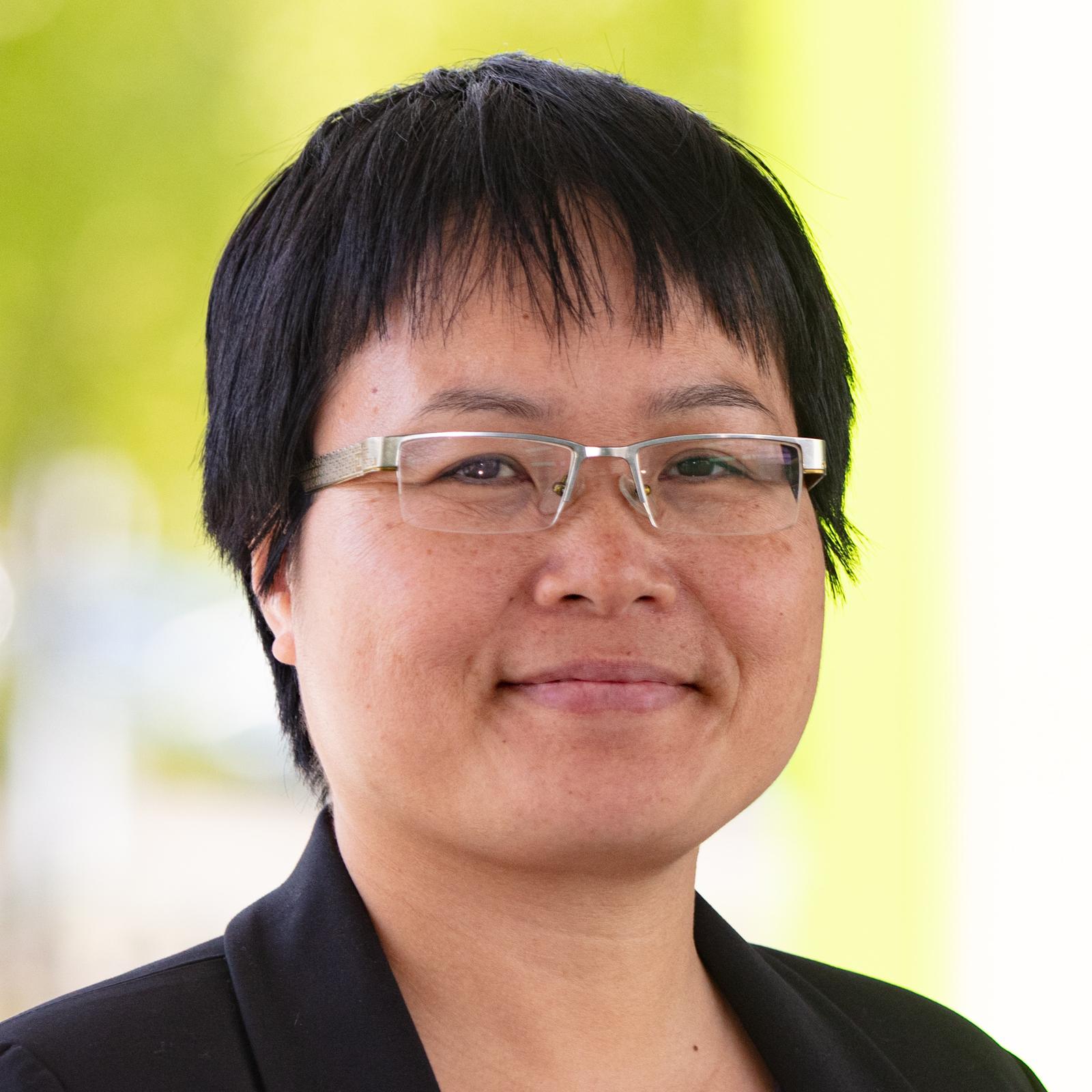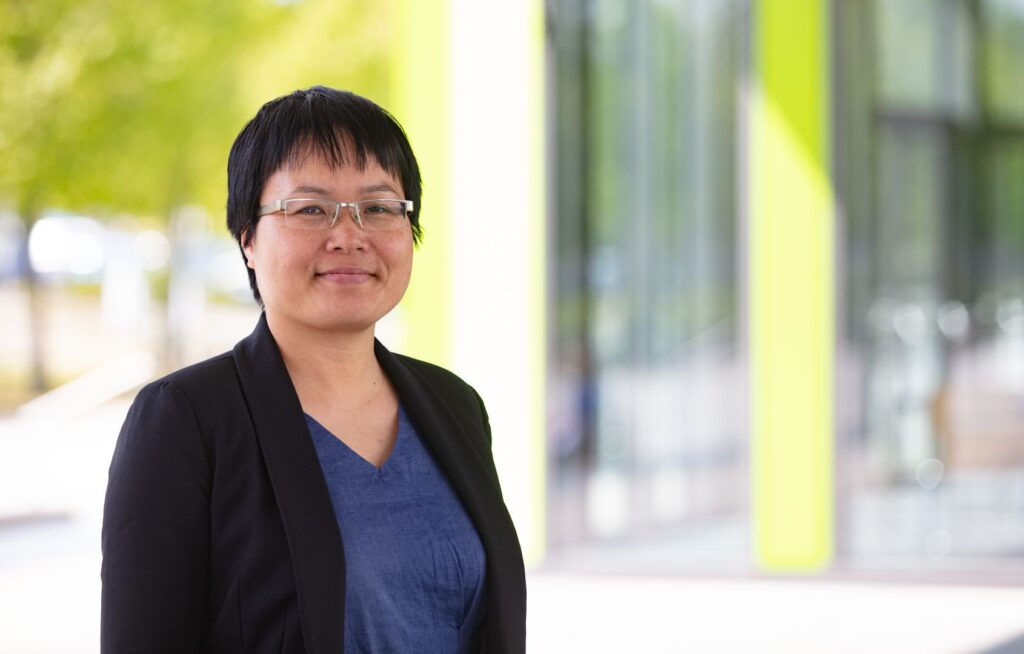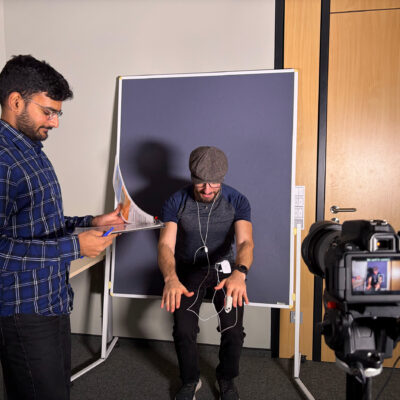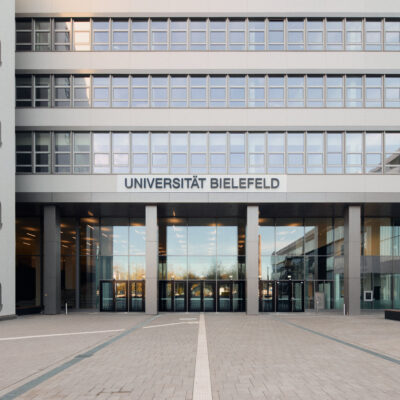Since 2019 Professor Dr Minh Nguyen, Social Anthropologist at Bielefeld University, has been working on the project ‘Welfare for Migrant Factory Workers: Moral Struggles and Politics of Care under Market Socialism’ (WelfareStruggles), funded as Starting Grant by the European Research Council (ERC) under the European Union’s Horizon research and innovation program. From 26 to 27 March the final conference of the project will take place at ZiF. The conference, which Minh Nguyen convenes together with Sociologist Dr. Jingyu Mao from Edinburgh University, is called ‘The Politics of Care under Market Socialism. Labour Mobility, Global Capital and Changing Welfare Systems in Vietnam and China’. In this interview, Minh Nguyen draws first conclusions of her project.
Professor Nguyen, how did you become interested in the question of care under market socialism?
My research has always had something do with care, from my doctoral research on paid domestic service and my post-doctoral research on household organisation of care by rural migrants in Vietnam, to my later research on rural welfare and the ERC funded research on welfare provision for migrant factory workers in China and Vietnam.
Building on the scholarship on the ethics of care, Joan Tronto, Roberta Zavoretti and I have defined care as processes of creating, sustaining and reproducing bodies, selves and social relationships. This definition brings care out of the spheres of the private and the moral, where care is deemed to belong as a feminine coded set of activities, into the public and political spheres.
At the same time, we recognise that care is a moral value that the state and the market alike actively deploy for purposes of authoritarian control, marketization, and exploitation. That’s why it is common to hear authoritarian states or exploitative corporations claiming to be caring for their citizens or their workers, customers and the environment.
Welfare is at heart a relationship of care, and our research project on the provision of welfare for workers employed at global factories in China and Vietnam has been guided by the notion of politics of care as the central concept for the inquiry. It refers to the negotiations and power dynamics at the societal, the institutional and the personal levels that go into shaping the care of the labour force.

© Mike-Dennis Müller
What is the most important difference in the politics of care under market socialism and under liberalism respectively capitalism?
Market socialism is the political economic system now adopted by China, Vietnam and Laos, all of which remain under the political rule of their Communist parties while pursuing a deepening course of marketisation and privatization. There is a concerted effort at the policy level to deploy capital, capitalist institutions and logics for the agenda of these party states for nationalist rejuvenation and economic growth as the basis of their political legitimacy. Yet, the political legitimacy of these Communist parties has always been premised on caring for the wellbeing of the people. That’s why we have seen the rapid introduction of new kinds of universal welfare programs offering basic social protection, for example cash transfers, health insurance or voluntary pension schemes, at the same time with the increasing privatisation of public goods and services and the much greater emphasis on self-responsibility and familialism in care and welfare. This differs from Western European welfare states post-WWII, where social democracy emphasized quality of life. But across the board in capitalist welfare states in recent times, we see how neoliberal restructuring is chipping away at the social state that had been built up through the hard struggles of these earlier movements. This erosion is driven by a similar emphasis on self-responsibility and self-enterprise as the basis of care and welfare.
So, if we look at the current state of things, perhaps the difference is not so great after all. Under market socialism, political alternatives for democratic care-focused institutions are suppressed by state control. Under capitalism, in the words of the British anthropologist Laura Bear, political reasoning for such alternatives is hollowed out by market-driven priorities.

© Mike-Dennis Müller
This is the final conference of a longer ERC-funded research project. Can you already say something about your most important findings?
First of all, in this political economic landscape in which Communist party states are pursuing dual goals of market liberalization and socialist control, differing visions of the good life and conceptions of labour are constantly in tension with each other, generating much contradiction and ambivalence in the struggles around the care of labour. However, there is increasing tendency towards what we call ‘recommodification’ of labour, exposing workers to market risks despite welfare schemes.
Secondly, the labour of the millions of rural migrants employed by the many global factories in these countries has been kept relatively low thanks to their household registration systems, which tie migrant workers’ access to welfare and social services to their villages, for many decades externalizing the social reproductive costs of the labour to the countryside. This system now divides regions by development levels, favouring urban migrants over rural ones.
The arrival of the global factory draws local labour into the global production system, inducing what we call ‘commuterisation’ of factory labour, at the same time that local families have to give up agricultural land for the development. Loss of rural land and quasi-privatization deepen labor precarity despite new income sources.
Curiously, there emerges a preference for flexible and unprotected employment, either overtime or seasonal work among the workers. This is because low-waged workers increasingly require cash incomes to meet immediate needs while there is a low level of trust in existing welfare schemes. Meanwhile, the prevalence of highly flexible work is also the result of global companies’ different strategies to reduce the number of formally employed workers.
As research is not only answering questions but also coming up with new ones at the same time, Minh Nguyen is now examining remaining questions. Among those she would like to address in the future are e.g. how financial risk enters into the social and political life and how they affect people, states and market socialism as a political economic system.




